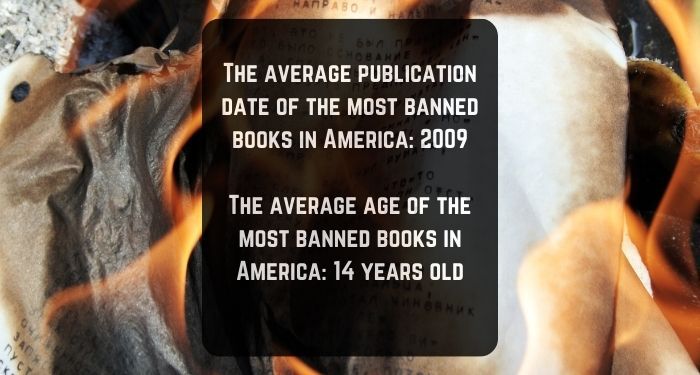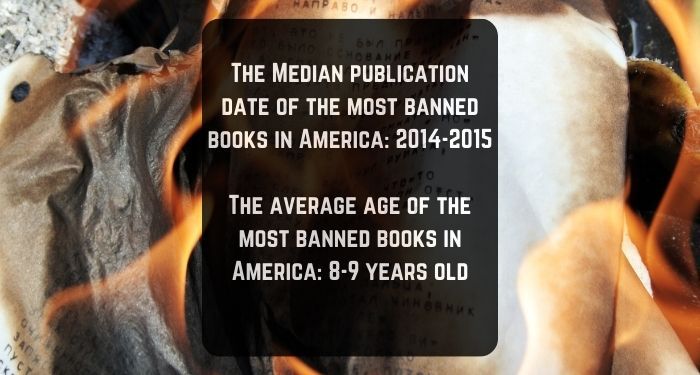Books by and about people of color, queer people, and those living at the intersections of those identities have increased in publication since the founding of We Need Diverse Books in July 2014. This was a watershed year, in that it came with increased demands for better representation in books, especially in YA. Things are still nowhere near parity with what the U.S. population looks like, but for the purposes of this post, what’s important to know is there are more books by and about BIPOC and queer people in YA than ever before.
Today’s teens, who were born between 2004 and 2010, are significantly more diverse than in previous generations. One-quarter of teens identify as LGBTQ+ — and that’s the 25% who openly identify that way — while only half of today’s teens identify as white, non-Hispanic. One in four of today’s teens are Hispanic, 14% are Black, 6% are Asian, and 5% are bi- or multi-racial. Nearly 1/4 of Generation Z are the children of immigrants and 66% live in a household with married parents. All of that data comes from PEW Research.
Despite growth in diversity both in publishing and in young people, it is curious to see that the most banned and challenged books in the USA average a publication date equal to today’s teenagers. These books, many classics of course, are not contemporary depictions of concerns or realities of today’s teens; good literature endures, so this isn’t a condemnation of that. Instead, it’s a moment to pause and realize that the process of getting books banned is long, requires wide access to books, and has a wealth of information about previous challenges and bans upon which book censorship advocates can draw.
Utilizing the most recent data from both PEN America and the American Library Association (ALA), I’ve noted the publication dates for every title in the top 10 most banned and challenged books. In one instance, a YA book was published in the UK before the U.S., so I’ve used the U.S. date to keep everything consistent. You can spend time looking at PEN and ALA’s introductions to understand why the titles differ slightly between the organizations.
Let’s take a look.
PEN America’s Most Banned Books, as of April 2023
Gender Queer, published 2019
Flamer, published 2020
Tricks, published 2009
Handmaid’s Tale Graphic Novel, published 2019
Crank, published 2004
Sold, published 2006
Push, published 1996
A Court of Mist and Fury, published 2020
This Book Is Gay, 2015
The Bluest Eye, published 1970
Milk and Honey, published 2014
Average Publication Date: 2008 | Average Age: 15
Median Publication Date: 2014 | Median Age: 9

American Library Association’s Most Challenged Books, April 2023
Gender Queer, published 2019
All Boys Aren’t Blue, published 2020
The Bluest Eye, published 1970
Flamer, published 2020
Looking for Alaska, published 2005
The Perks of Being a Wallflower, published 1999
Lawn Boy, published 2018
The Absolutely True Diary of a Part Time Indian, published 2007
Out of Darkness, published 2015
A Court of Mist and Fury, published 2020
Crank, published 2004
Me and Earl and the Dying Girl, published 2012
This Book is Gay, published 2015
Average Publication Date: 2010 | Average age: 13
Median Publication Date: 2015 | Average age: 8

Don’t take this information as anything other than what it is: a look at some interesting dates and data. It is not reflective of the thousands of books being banned right now, across the country, and it is certainly not reflective of the hundreds or thousands of books not being purchased or being quietly removed from shelves through silent/quiet censorship. But it is a reminder that these most banned books are but a segment of the books seeing book banning ire and indeed, that segment is not as new as you might think it is.
Banning books at the current rate takes a lot of work — and it is still work if it’s simply plagiarizing other book banners. These people have been playing the long game since the start of the ’00s, and they’ll continue to ram their christofascist agenda forward.
Book Censorship News: July 7, 2023
Thanks to this week’s day for fascists to throw their whole selves into other activities, book censorship news is lighter than usual. Don’t expect this to continue.
Moreover, this roundup features more paywalled stories than ever before. The media, by putting news about book bans behind a paywall, are complicit in their continuation. If your community does not know what’s happening and cannot access information about it, you leave wide open the door for it to continue since there is no accountability being held. If someone looks for news and can’t access it at your site, they’ll find it at a free fake news site.
- I am paywalled, but 10 of 14 books being challenged in Santa Rosa County Schools (FL) have been removed in the first round of reviews for the 65 books that their Moms for Liberty chapter have complained about.
- This is another paywalled article, but it is about how in Orange County Schools (FL), over 150 titles are already on the reject list for the coming school year and some are sitting in purgatory for review (this is still censorship, for what it is worth). The titles are being age-restricted tightly, too. “The classic novels A Room With a View and Madame Bovary and the epic poem “Paradise Lost” — published in England more than 350 years ago — have been at least temporarily rejected by Orange County Public Schools for sexual content that educators fear runs afoul of a new Florida law. Novels that in past years were frequently taught in OCPS high school classes, such as The Color Purple, Catch-22, Brave New World, and The Kite Runner have been put on the rejected lists, too, as have novels by Toni Morrison and Ayn Rand and popular, turned-into-movies books like Into the Wild, and The Fault in Our Stars […] Four plays by William Shakespeare, including “A Midsummer Night’s Dream,” are currently listed as approved for grades 10 through 12 only, as are Truman Capote’s “In Cold Blood” and Tennessee Williams’ “A Streetcar Named Desire,” the lists show.”
- Klein Independent School District (TX) is considering banning The Bluest Eye. Stellar work here from Frank Strong, digging into the coordinated attack on dual-credit courses in the district.
- A Katy Independent School District (TX) student — who is queer — writes about how queer kids go to school in the district and are losing the battle to be who they are and see themselves in books. The article is paywalled for me, but it may not be for you.
- An interesting look at book bans and the legal obligations schools have to their students (via a law firm).
- This letter to the editor is REALLY worth reading. It talks about how Saline Public Library (AR) is under attack from right-wing radicals and warns that Garland County will be next. But this bit is where it gets *very* good: “I have a suggestion for our local library management: Follow all necessary protocols when someone comes in and objects to a book. Fill out the proper paperwork, be polite. Then forward the information including the name of the person wanting to have said book removed, along with the title of the book to The Sentinel-Record. Since this is public information and a hearing over the book’s removal will have to be held, all of the rest of the taxpaying citizens of Garland County should have a right to know that information in advance so they might attend, ask questions, and voice their own opinions. From the newspaper’s standpoint, every Sunday divorces, marriages, civil cases, criminal cases, building permits, etc; are listed. These attempts at book removal should be also, as they are public information. This would give the public ample advance time to attend if they deemed it warranted.”
- Hernando County Schools (FL) removed a book on gender identity from one of the elementary schools.
- What happens when a public library shares its space with a school library and now school libraries are obligated to remove books that do not comply with “sexually explicit books” laws? This story features our own Tirzah Price and is worth reading (IA). The short answer is the public library isn’t removing the books.
- The story of the Samuels Public Library (VA) is not getting enough attention, but now the incoming board president is pushing back against the book banners claiming that the library is filled with porn for kids.
- Paywalled, but a parent in West Shore, Pennsylvania, complained about two LGBTQ+ books in Cedar Cliff High School. Now that there’s been an extensive search for the bad books, guess what? They were never there at all.
- A Cocalico School Board member (PA) is upset about what she believes to be “pornographic” books in the school libraries. She’s not even creative. The books are Blankets and The Handmaid’s Tale Graphic Novel. Discussion of the books will happen in August.
- Old Lyme’s public library has received requests to ban two sex education books for teens. In response, the Connecticut community had over 400 people sign a letter in support of the library and its collection. (Paywalled…)
- Lower Cape May Regional Schools in New Jersey will not be banning Gender Queer.
- A teacher in Portales, New Mexico, was removed from her job for teaching The Hate U Give in a 9th grade honors class. Why? A couple of students claimed the teacher was anti-white and made them uncomfortable.
- Here’s a clever new way bigots are going to try to remove books from the library: public decency standards clauses in their city ordinances. This story from Murfreesboro, Tennessee, gives the lowdown.
- “Montgomery County Public Schools [MD] issued a statement Thursday reaffirming its ‘commitment to cultivating an inclusive and welcoming learning environment’ by not allowing parents to opt their children out of LGBTQ+ storybooks. The statement comes after months of protests, petitions and a lawsuit from parents as well as national and local organizations requesting an opt-out option.” Good. They don’t notify parents when a book has a heterosexual theme, so they shouldn’t be doing it in non-heterosexual-themed books, either. These are not sensitive topics. They’re real life. Those angry parents can just go homeschool their kids like they so desperately want to anyway.
- House of Sky and Breath and House of Earth and Blood, both by author Sarah J. Maas, are under fire at Grangeville Centennial Library (public library in Idaho) by book banners. This one took complaints right to the city council, bypassing the library itself since the board was not sympathetic to her crisis acting.
- “In Earl Campbell’s more than 25 years on the Beaufort County School Board [SC], he said he has never seen anything like Tuesday night, when a parent and community member threw four bags of chicken feed on the stage in front of where board members were seated. ‘Chicken. Too afraid,’ David Cook said after walking up to the lectern carrying a black backpack, contents unknown until he reached in and flung the still-sealed bags. ‘Matter of fact, your behavior gives chicken a bad name.’ During the public comment section of the meeting, Cook said wanted to display his ‘opinion of (the board and the superintendent’s) lack of action’ as the district gradually returns the majority of the 97 books taken off shelves for review in October to libraries.” This is a grown-ass adult who threw food at the school board for…following their own policies in reviewing almost 100 books.
- The Leon County School Board (FL) recommends keeping the Billie Jean King children’s biography in the school library. The final decision over this one will come in the next couple of weeks.
- This is a New York Times piece, so your mileage will vary on access, but it’s a deep dive into the censorship of school plays over the last year.
- One of the book banning leaders in Elmhurst, Illinois, got upset the local paper has referred to him as “conservative,” claiming they never call his rivals progressives. The newspaper responded…with proof they have. Keep your receipts, kids, for when the regressives cry.
- “A member of the ImagineIF Libraries Board of Trustees [MT] has indicated her desire to remove provisions in the library’s ‘Fair Treatment’ policy that expressly resist censorship.” Why, you might ask? She was one of the proponents behind removing Gender Queer from the library, of course.
- Parents of students in Chapin High School (SC) are claiming “critical race theory” was being taught by a teacher and that that teacher needs to be fired.
- Over the last two years, 12 books have been either banned or restricted in Evansville Vanderburgh Schools (IN) and half of them are by Ellen Hopkins. The second part of that sentence is why this is all BS: Hopkins’s books have likely been on those shelves for a decade or more. Why now?
- The Lebanon Public Library (OR) has been dealing with some challenges from an individual spouting the same nonsense as the rest of the crisis actors, and this one decided she doesn’t need to go through the normal process. She instead went straight to the city council. Why? Well, when you dig into the story, you’ll discover that the complainer was involved in a local church, and one of the council people was involved in that church…
Also In This Story Stream
-
A Censorship Language Primer: Book Censorship News, June 30, 2023 -
70 Years of the Library Bill of Rights: Book Censorship News, June 23, 2023 -
How Much Have Book Bans Impacted Author Visits? A Survey: Book Censorship News, June 16, 2023 -
SHINY HAPPY PEOPLE Is a Must-Watch to Understand Today’s Book Ban Movement: Book Censorship News, June 9, 2023 -
Unfurling The Book Banner Lies: Book Censorship News, June 2, 2023 -
When Do We Move From Advocacy to Preparation?: Book Censorship News, May 26, 2023 -
A Bill in Connecticut Would Fund Sanctuary Libraries: Book Censorship News, May 19, 2023 -
How To Prepare Library Pride Displays: Book Censorship News, May 12, 2023 -
2023 Right to Read Bills Under Consideration: Book Censorship News, May 5, 2023
